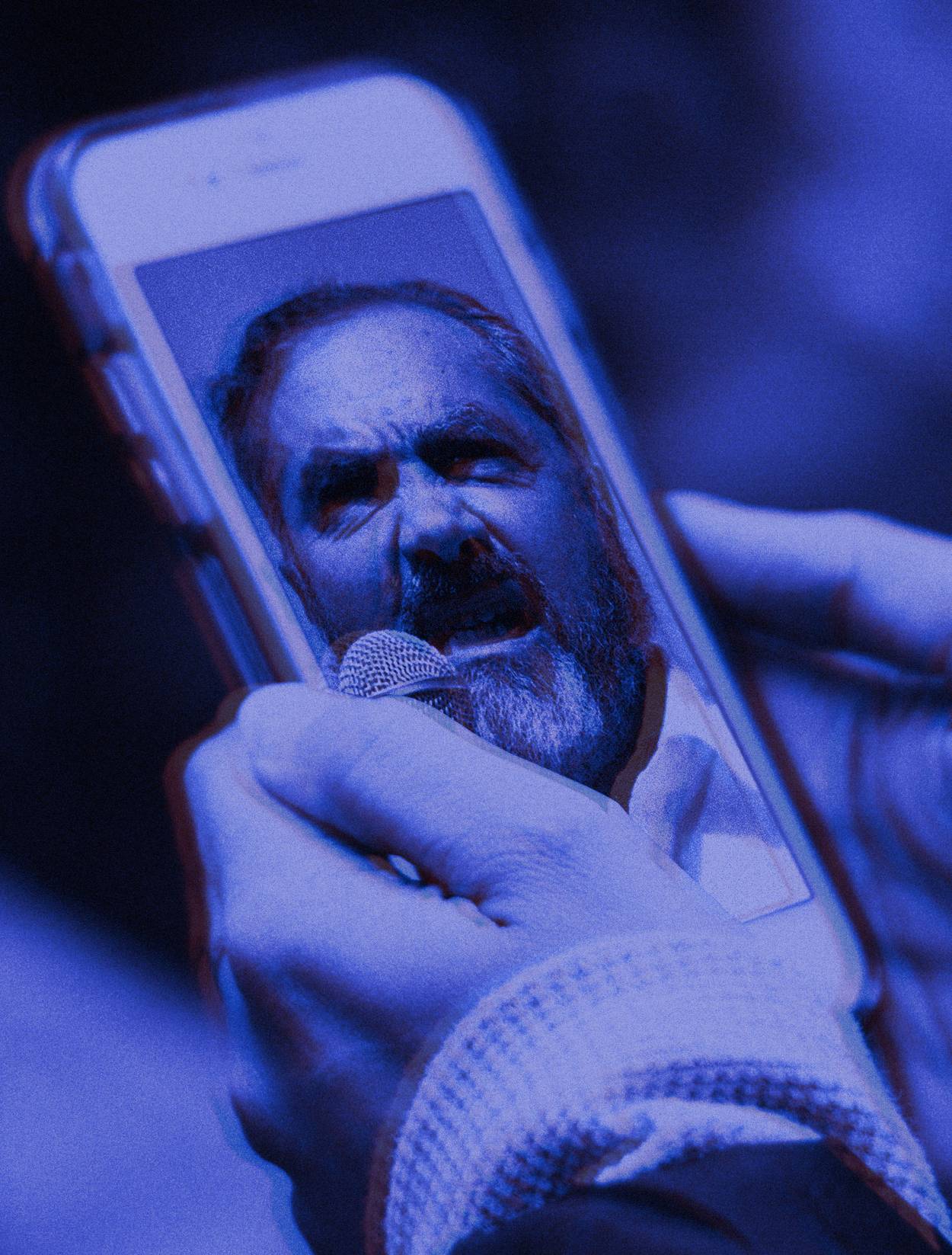
 Palestyńska tożsamość narodowa jest kłamstwem
Palestyńska tożsamość narodowa jest kłamstwem
Itamar Marcus Ephraim D. Tepler
/ Tłumaczenie: Małgorzata Koraszewska
Ze stałego strumienia kłamstw Autonomii Palestyńskiej, prawdopodobnie największą farsą jest jej twierdzenie, że jest narodem liczącym 6000 lat, w połączeniu z zaprzeczeniem istnienia tysięcy lat udokumentowanej historii Izraela. Pokazana powyżej karykatura, która niedawno pojawiła się na oficjalnej stronie Fatahu, wzmacnia to kłamstwo.
Chociaż Autonomia Palestyńska wie, że nie istnieje coś takiego jak historia Arabów Palestyńskich wcześniejsza niż ostatnie kilkadziesiąt lat, przywłaszcza sobie historię wielu grup etnicznych obecnych w Ziemi Izraela tysiące lat temu, nazywając je „Palestyńczykami”.
Ta propaganda jest stała, jest dziełem wszystkich przywódców AP, tak zwanych intelektualistów i postaci religijnych, i jest rozpowszechniona w całej kontrolowanej przez AP edukacji i mediach. Nagłówek powyższej karykatury nosi tytuł „Historia”, a podpis głosi:
„Naród palestyński ma długą historię kultury i był częścią starożytnych kultur, ponieważ jego ziemie charakteryzowały się różnorodnymi kulturami na przestrzeni pokoleń, od Kananejczyków po Fenicjan”.
[Falestinona, Komisja Informacji i Kultury Fatahu w Libanie, 19 lutego 2025 r.]
Karykatury takie jak ta powyżej są migawką tego, jak AP systematycznie pierze mózgi swojej ludności, by odmówić Izraelowi prawa do istnienia poprzez zniekształcanie lub zaprzeczanie historii. Ta edukacja stanowi sedno sposobu, w jaki AP edukuje dzieci, a jednocześnie jest konsekwentnie głoszona przez przywódców PA.
Przykładem tego rodzaju fałszywej edukacji AP/Fatahu jest pismo Fatahu dla dzieci:
„Palestyna należy do Palestyńczyków od tysięcy lat. Dlatego naród palestyński odrzucił tę rezolucję [ONZ], która przyznaje prawa do naszej ziemi i naszej ojczyzny cudzoziemcom, którzy przybyli ze wszystkich krańców ziemi, cudzoziemcom, którzy nie znali Palestyny i w niej nie mieszkali – ani oni, ani ich ojcowie i przodkowie. Ich kolor nie jest naszym kolorem, ich skóra nie jest naszą skórą, a ich zwyczaje różnią się od naszych zwyczajów. Nie mają nawet jednego koloru skóry ani jednego pochodzenia etnicznego – są dziwną i osobliwą mieszanką różnych ras”.
[Waed, numer 36, str. 2]
Fakty są takie, że Izrael/Judea doświadczyła inwazji i wygnań ze strony Imperium Asyryjskiego (722 p.n.e.) i Imperium Babilońskiego (586 p.n.e.); doświadczyła inwazji i powrotu z wygnania za czasów Imperium Perskiego (538 p.n.e.); okupacji przez Imperium Greckie (329 p.n.e.) i wygnania przez Imperium Rzymskie (70 n.e. i 135 n.e.), które również zmieniło nazwę ziemi na „Syria-Palestyna” w 135 n.e. Od tego czasu część Żydów pozostała i przetrwała w Ziemi Izraela, część przetrwała na wygnaniu przez 2000 lat inwazji i okupacji ich kraju przez cudzoziemców, aż do ponownego ustanowienia Państwa Izrael w 1948 r.
Nic z tego nie ma znaczenia dla AP/Fatahu. Równocześnie z zaprzeczaniem starożytnej historii Izraela, bierze duże fragmenty historii żydowskiej i przepisuje je jako „historię palestyńską”:
„Kananejscy Arabowie zasiedlili ziemię Palestyny… Palestyna przeszła dziesiątki inwazji, a wiele ludów wkroczyło do niej, takich jak Babilończycy, Persowie, Samarytanie, Asyryjczycy, Hyksosi, Hetyci, faraonowie i Hebrajczycy… Sto lat temu najechali ją Brytyjczycy. Ich inwazja była najniebezpieczniejsza, ponieważ celowo przybyli, aby oddać naszą ziemię Żydom, których ze sobą przywieźli. Ostatecznie Palestyna znalazła się pod okupacją syjonistyczną, która trwa do dziś… Okupacja przestanie istnieć tak samo, jak to, co było przed nią. Jak powiedzieliśmy, Palestyna przeszła wiele inwazji, które jej pożądały. Wszyscy najeźdźcy zostali pokonani, a Palestyna powróciła, by być wolną i arabską”.
[Waed, numer 32, str. 5-6]
Ponieważ według Autonomii Palestyńskiej/Fatahu Palestyńczycy są potomkami Kananejczyków-Palestyńczyków sprzed 5000 lat, i ponieważ Autonomia Palestyńska twierdzi, że Żydzi nie mają historii na tej ziemi, Palestyńczycy mają „absolutne prawo odzyskać w pełni swoje prawa” [Waed, wydanie 26, strona 12], a zatem:
„Naród palestyński się nie podda; tak jak walczył w przeszłości, aby bronić swojej ziemi, wraca, aby walczyć, aby ją odzyskać i powrócić do niej… Naród palestyński odmówił poddania się… Jego mężczyźni i kobiety wyruszyli, aby szukać sposobów, aby zwrócić nam Palestynę”.
[Waed, numer 25, str. 4-5]
Te same bzdury głoszone są na najwyższych szczeblach kierownictwa Autonomii Palestyńskiej, niezależnie od tego, czy czyni to były premier Palestyny, czy główny doradca Mahmuda Abbasa:
Opublikowany tekst : „[Członek Centralnego Komitetu Fatahu i były premier Autonomii Palestyńskiej Muhammad] Sztajjeh podkreślił, że wszystkie izraelskie próby wymazania naszego palestyńskiego dziedzictwa, a przez to wymazania historii naszego ludu i naszej palestyńskiej sprawy narodowej, a także próby Izraela stworzenia fałszywej historii i nieistniejącego dziedzictwa, nie powiodą się, ponieważ będziemy kontynuować nasze niezachwiane przywiązanie do tego bogatego dziedzictwa, które przechodzi z pokolenia na pokolenie”.
[Komisja Informacji i Kultury Fatahu, strona na Facebooku, 29 listopada 2024 r.]
Doradca ds. religii i stosunków islamskich przewodniczącego Autonomii Palestyńskiej Mahmuda Abbasa, Mahmoud Al-Habbasz: „Żyjemy na tej ziemi od ponad 6000 lat. Naród palestyński jest tym, który stworzył cywilizację i historię tej ziemi. To on zbudował wszystkie miasta na większości terytoriów Palestyny – Strefę Gazy, którą zbudowali Kananejczycy, i Jerozolimę, którą zbudowali Jebusyci Kananejczycy”.
[Mahmoud Al-Habbasz, kanał YouTube, 12 lutego 2025 r.]
Faktem jest, że żadna ilość karykatur ani edukacji opartej na zmyśleniach nie pomoże AP uciec od faktów. Palestyńczycy nie mają historii sprzed okresu współczesnego i nie mają żadnego związku z Kananejczykami ani Fenicjanami. Z drugiej strony, historia Żydów od tysięcy lat w Ziemi Izraela jest potwierdzona przez mnóstwo dowodów.
Itamar Marcus – założyciel i dyrektor Palestinian Media Watch,
Ephraim D. Tepler – badacz i publicysta Palestinian Media Watch
Zawartość publikowanych artykułów i materiałów nie reprezentuje poglądów ani opinii Reunion’68,
ani też webmastera Blogu Reunion’68, chyba ze jest to wyraźnie zaznaczone.
Twoje uwagi, linki, własne artykuły lub wiadomości prześlij na adres:
webmaster@reunion68.com




